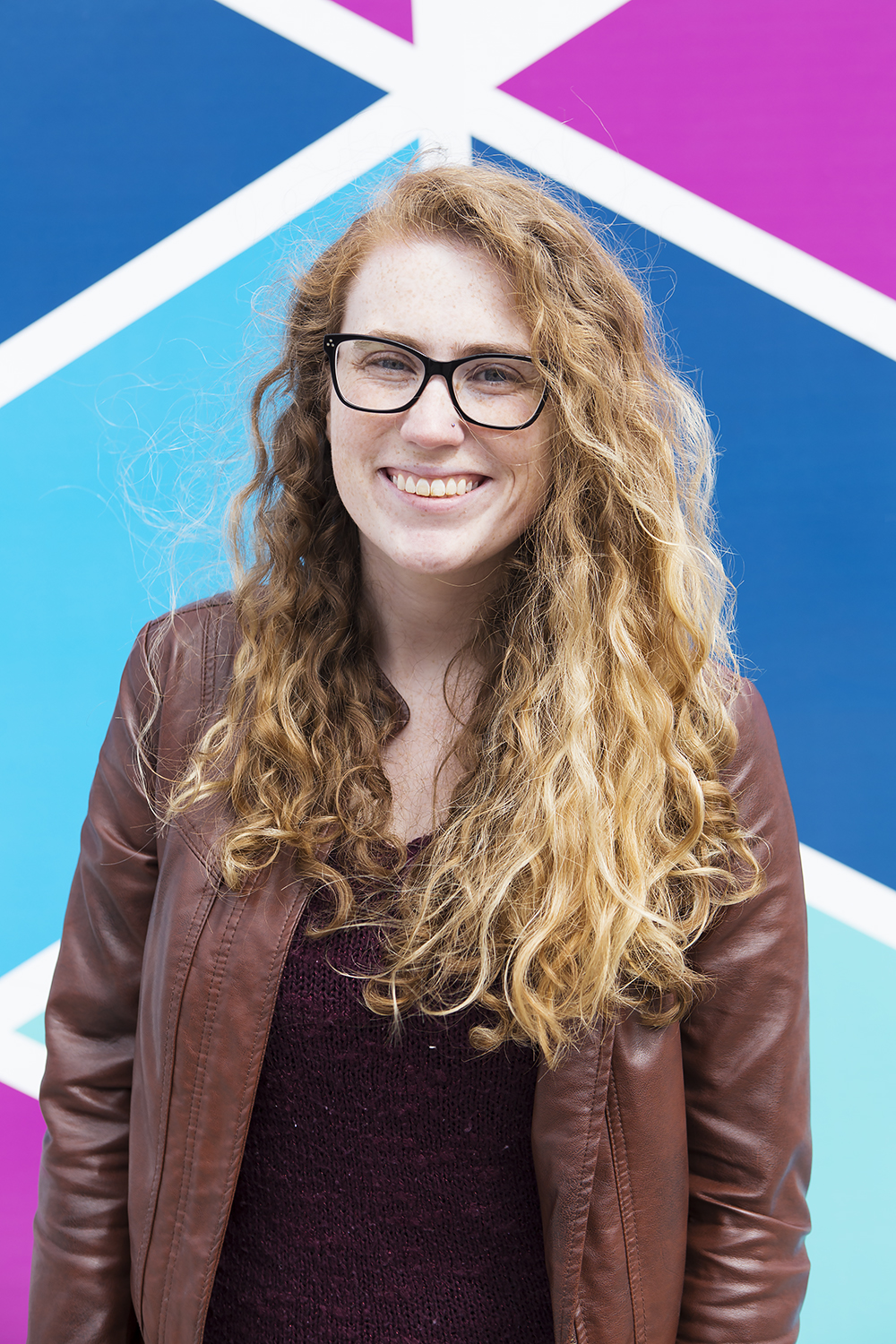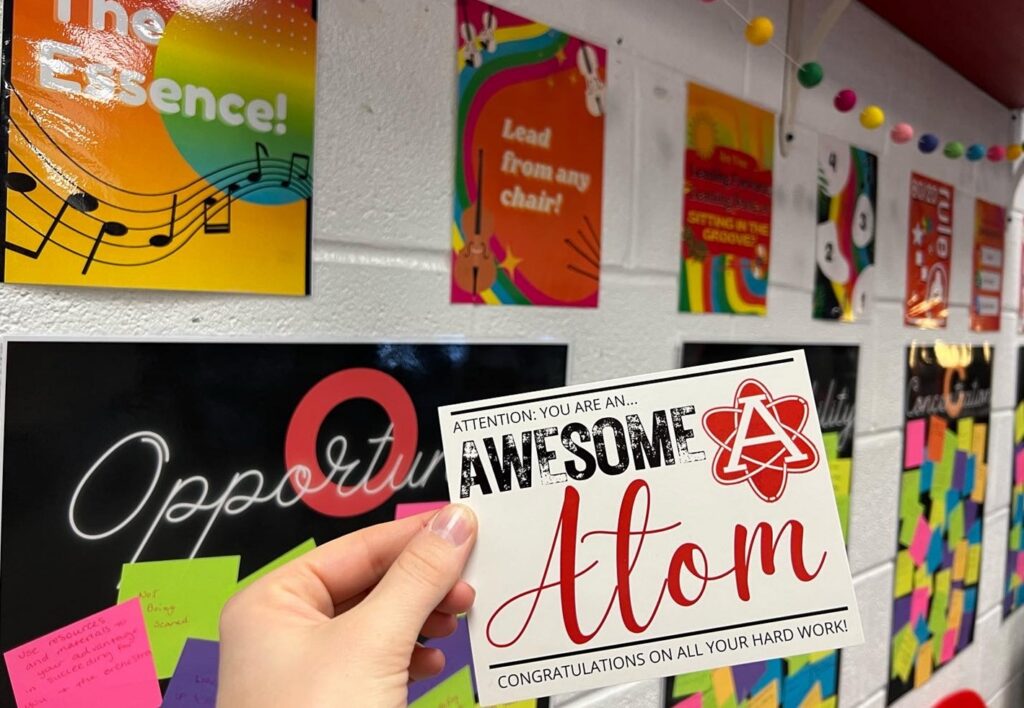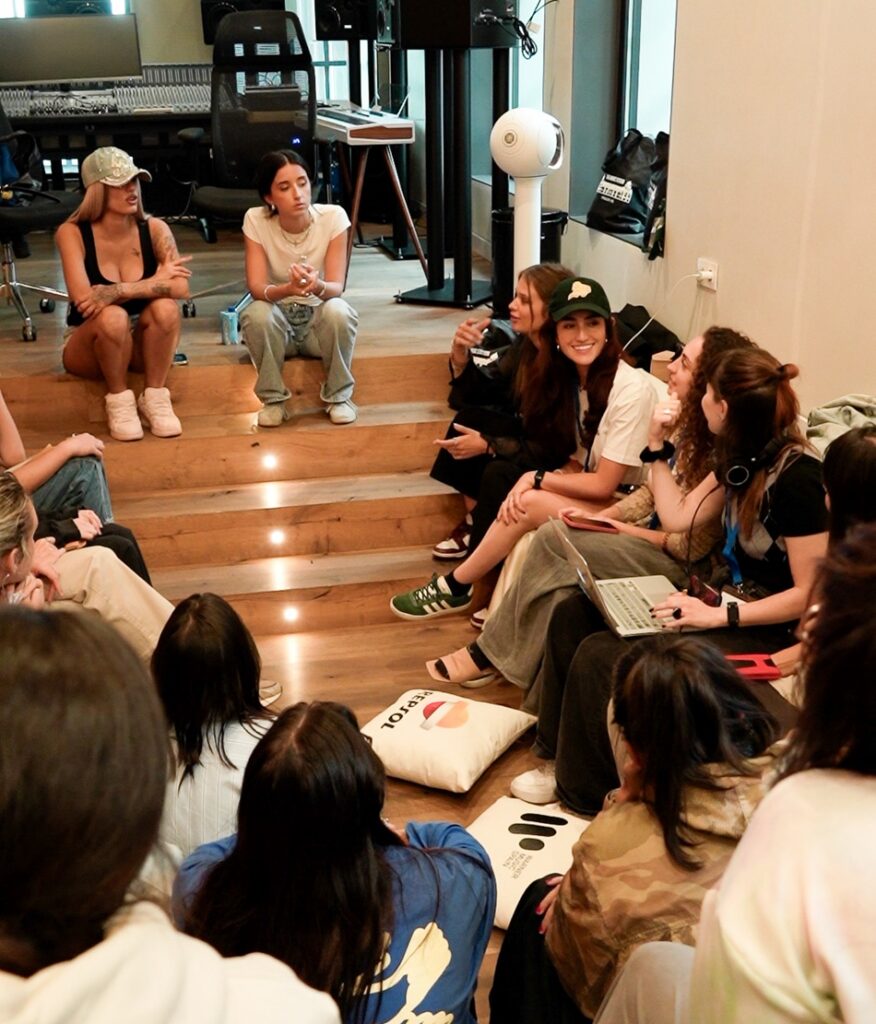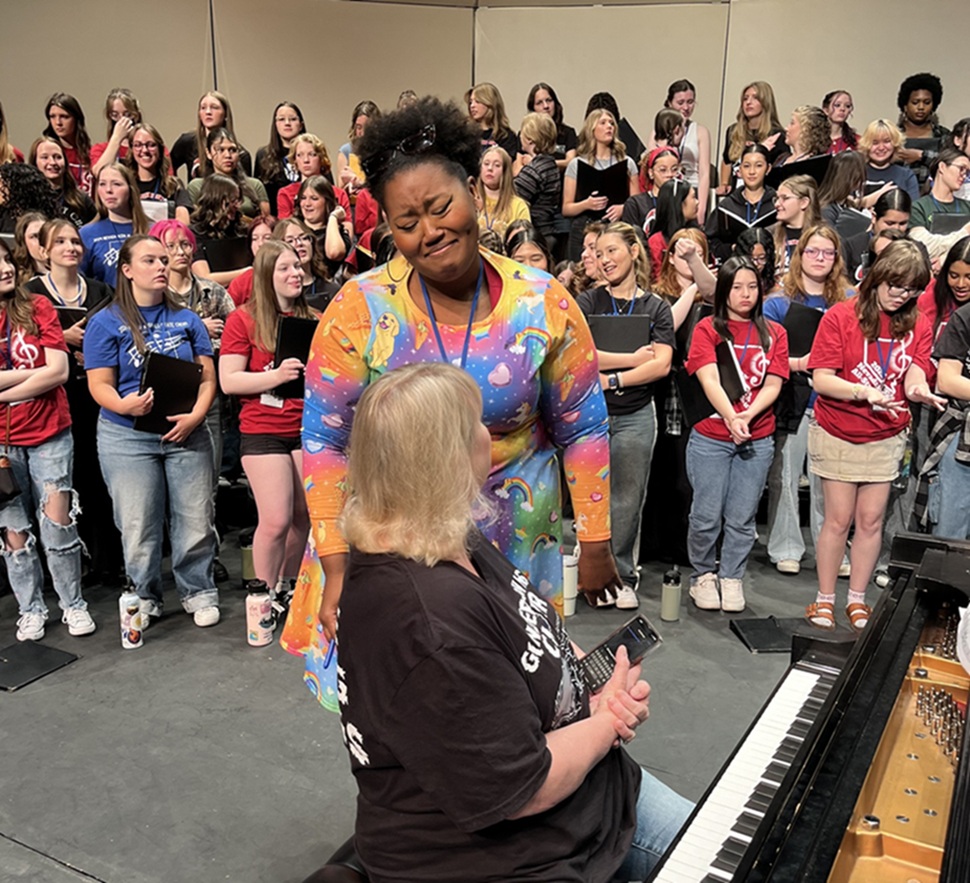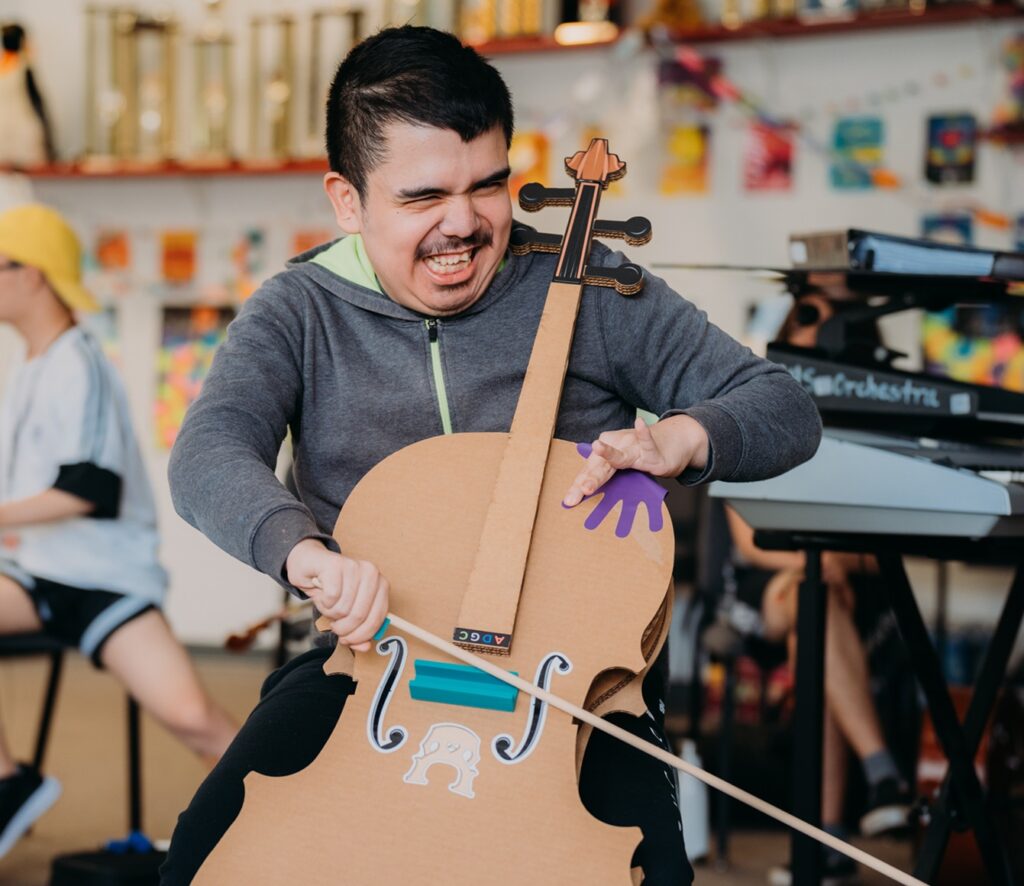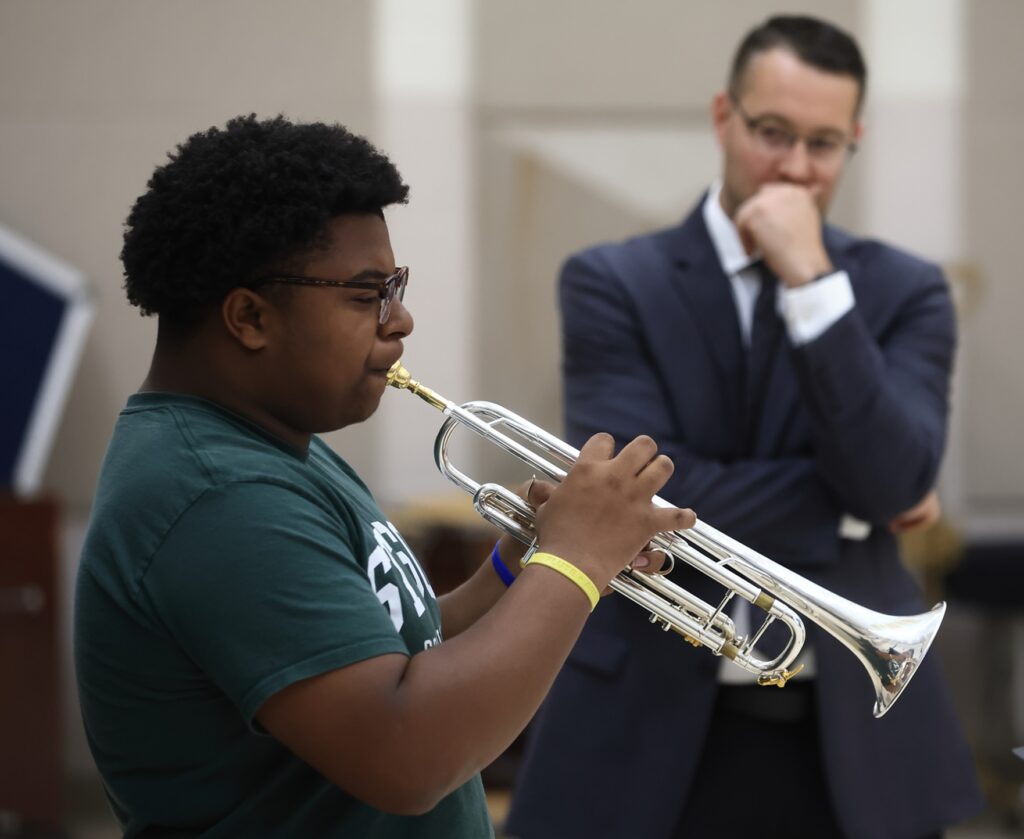RAMP: A Summer Camp for Music Teachers
Learning through action is a core philosophy for a new professional development conference for music educators that takes place alongside a music camp for students.
This summer, the San Diego Summer Music Institute (SDSMI), which has operated since 2010, will meet once again for its annual summer camp from June 18 to July 1 at Point Loma Nazarene University in San Diego. Running concurrently with SDSMI — from June 20 to 23 — is a professional development conference for music educators called RAMP. The adults are going to summer camp, too!
RAMP stands for Ryan Anthony Music Project. Its namesake, Ryan Anthony, was a local San Diego musician whose claim to fame was performing principal trumpet for the Dallas Symphony Orchestra before passing away from cancer in 2020. Just as Anthony began his musical journey in San Diego and spread his music throughout the world, RAMP aims to do the same: To get the best minds in music education all in one place to inspire a new generation of musicians.
According to James Sepulvado, director at SDSMI, one of the founders of RAMP and a 2023 Yamaha “40 Under 40” music educator, adding programming for educators was always part of the vision behind the summer program. “We always had this dream of growing the summer program to include a portion of the camp for teachers,” he says.
RAMP held its first four-day conference at SDSMI in 2019. After a two-year hiatus due to COVID, it returned in 2022. Registration is currently open for the 2023 RAMP conference!
Camp and Conference Combine
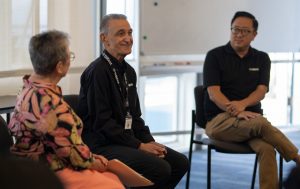
Students aren’t the only ones who crave summer enrichment. Sepulvado recalls being a young music educator and wishing for more professional development resources. “I was a young teacher who was really hungry and eager to do good work, but didn’t always know where to go,” he says.
Once SDSMI was up and running, Sepulvado saw an easy transition toward incorporating programming for teachers as well. After all, top-notch performers and educators were already working as instructors at the camp. “We have this incredible resource — a camp going on with 200 students,” he says. “We also have 70 of the top musicians in the region teaching these kids. If you’re a teacher trying to learn how to be a better teacher, what better way to do that than to see one of the best teachers do it in real time?”
Each morning, SDSMI students attend masterclasses taught by university professors, San Diego Symphony members and other professional musicians. During the RAMP conference, teachers can attend those masterclasses to observe how the instructor engages with students. “Similarly, we’ll open up some of the rehearsals, so [teachers] can watch a really great conductor work with students,” Sepulvado says.
Where Theory Meets Practice
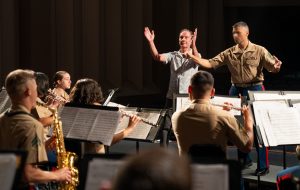
A core philosophy behind RAMP is the emphasis on learning through action. “In college when you take a conducting class, you read a textbook. Maybe you get to conduct for a few minutes at a time, but you’re not really getting the experience of doing,” Sepulvado says.
One of the programs that emphasizes the importance of learning through experience is RAMP’s Conducting Symposium. “We have four military bands in San Diego, and we get one of them to be the ‘lab band’ for our Conducting Symposium,” he says.
The symposium gives 10 participating educators the opportunity to take turns conducting the military band while professional conductors observe and provide feedback. According to Sepulvado, “As a conductor, there’s literally nothing more valuable.”
To participate in the Conducting Symposium, attending educators can select “yes” to a question on the application form, and then answer a few additional questions about why they would be a good fit for this unique opportunity.
The Conducting Symposium was a success at last year’s conference. “We were blown away at how much people were learning and growing,” Sepulvado says. “In college, you’re reading and listening to lectures. That’s hypothetical knowledge. Now, you find yourself in this Conducting Symposium setting, and the growth is so fast.”
The Teaching Lab
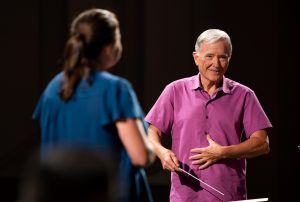
Learning through practice, rather than solely through theory, is the philosophy behind another main draw at this year’s RAMP conference: The Teaching Lab, a series of classrooms where educators can work directly with SDSMI students. This paradigm has been in the works for a few years. “We’ve refined the Teaching Lab concept,” Sepulvado says. “We knew the pedagogical value of doing over listening to a lecture, but it’s taken us a bit of time to figure out how to execute that. We’re going to have rooms available where teachers can drop in and learn.”
The Teaching Lab draws from two sets of resources available at SDSMI — the students attending the camp and the educators attending the RAMP conference. “Let’s say you’re a teacher who wants to learn how to teach mariachi, and you’ve never done that,” he says. “We have a room set up with the instruments and a wonderful mariachi teacher in there. We can grab some students from the camp who have never done mariachi before. The expert teacher can instruct while the teacher who wants to learn observes, and then is able to jump in and try it themselves.”
Teaching Lab classrooms will focus on underrepresented areas of music education, including mariachi, steel drums and modern band, which often includes rock music.
Beyond the Classics
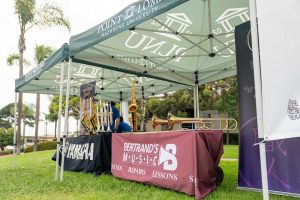 According to Sepulvado, the Teaching Lab’s focus on underserved forms of music education stems from a desire to make music more accessible to a wider variety of students. “One of the most important discussions happening in education is about equity and how to meet students where they are,” he says. “I’m a big believer in the importance of classical music and jazz, but I do think there’s tremendous power and value in having a class where students are playing music that they listen to and love.”
According to Sepulvado, the Teaching Lab’s focus on underserved forms of music education stems from a desire to make music more accessible to a wider variety of students. “One of the most important discussions happening in education is about equity and how to meet students where they are,” he says. “I’m a big believer in the importance of classical music and jazz, but I do think there’s tremendous power and value in having a class where students are playing music that they listen to and love.”
In addition to modern band, which prioritizes popular rock music that teens already listen to, Sepulvado says that including mariachi and steel drum classes can reach students whose cultures may prioritize those types of music. “There are certain communities, certain groups of students, who are going to be more familiar and more comfortable with those means of musical expression,” Sepulvado says. “Being able to instruct teachers on how to do that is really cool.”
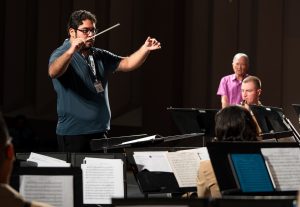
Just as the music genres featured at RAMP go beyond traditional classical music, RAMP itself is far from a classical conference. By integrating a professional development element into a summer camp, RAMP’s founders have tapped into a wealth of resources that ultimately serve to bring more musicians together. “Fundamentally, I think our organization is centered around the idea that music-making and music education are potent weapons for peace,” he says. “It’s this incredible mechanism for community-making, character-building and shaping humans in a wonderfully productive and positive way.”
At the core of Sepulvado’s vision is a mission to spread music as a form of communication and human expression among students and teachers alike. “There’s an approach to music education that puts expressivity front and center, and that’s what we want to champion,” he says. “That may not always be the loudest voice in our field because a lot of time is focused on the technique-based approach, but music is about connections with other humans above anything else, and the technique serves that.”
Click here to register for the 2023 RAMP conference, June 20-23, at Point Loma Nazarene University in San Diego.









